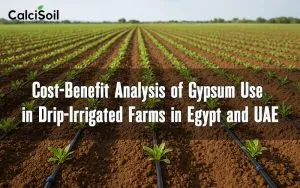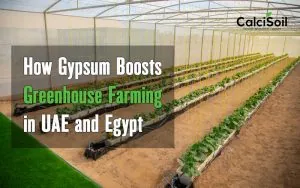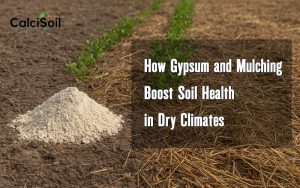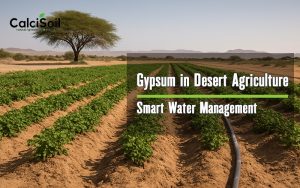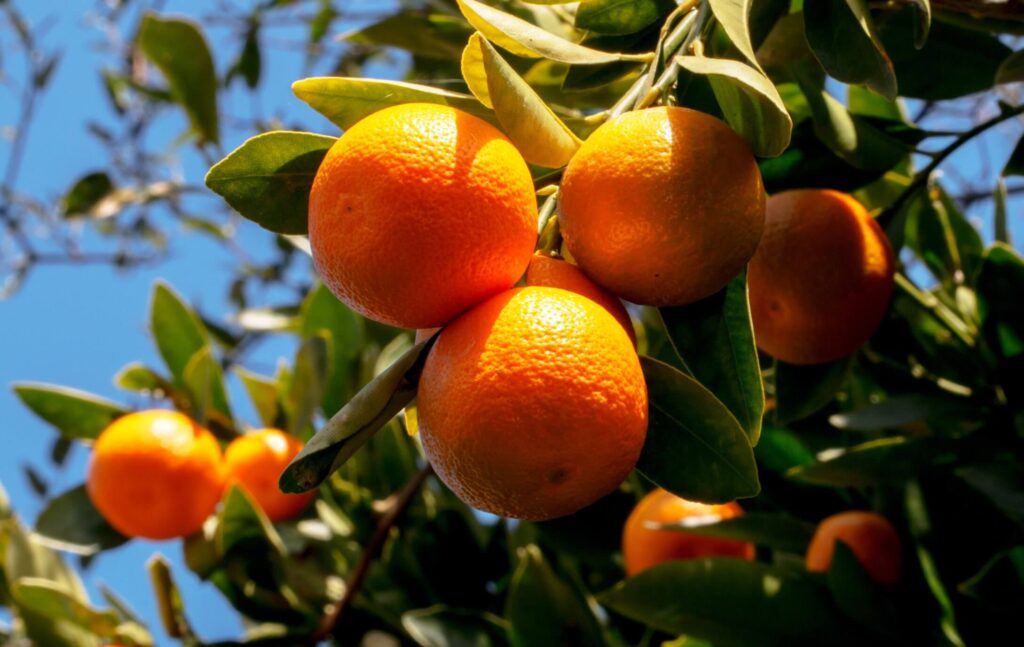
Agricultural gypsum affects plants
(Agricultural gypsum effect on the quality of fruits and plants)
The application of plaster increases the quality of fruits and prevents some of the plant diseases. We see lack of Calcium in most of the growing fruits. For harvesting fruits with appropriate quality, enough Calcium is necessary. Therefore, enough Calcium must be always available for the plant’s roots. The Calcium in agriculture plaster prevents the Blossom End Rot disease in watermelon and tomato. and also curbs the Bitter pit disease in tree apple.
Using plaster, adjusts the absorption of food elements by the plant. The Calcium which is freed by dissolution of plaster in soil, is one of the main components of biochemical mechanisms. and plays a role in the absorption of most of the plant’s food elements by its roots.
Disadvantages of lack of Calcium in plant roots:
By not having enough Calcium in the plant’s roots, it will have problems with the absorption of nutrients. which are needed for the plant’s growth. Also, Calcium acts as a balancer for the low-used elements like Iron, Zinc, Manganese and Copper in the plant. Calcium balances the elements which are absorbed by the plant. but are not necessary as well and prevents the plant to absorb them more than enough.
In addition to the effects on nutrient absorption and element balance, there are several other disadvantages of a lack of calcium in plant roots:
1. Poor root development: Calcium is essential for root cell division and elongation. Without enough calcium, roots may not develop properly, leading to poor growth and yield.
2. Increased susceptibility to diseases: Calcium helps to strengthen plant cell walls, making them more resistant to fungal and bacterial diseases. Plants with insufficient calcium are more susceptible to disease.
3. Reduced stress tolerance: Calcium plays a role in plant stress responses, helping to regulate water uptake and transpiration. Plants with low calcium levels may be more susceptible to drought and heat stress.
4. Poor fruit quality: Calcium is important for the development and quality of fruits and vegetables. A lack of calcium can result in poor fruit quality, including blossom-end rot in tomatoes and peppers.
5. Reduced shelf life: Calcium is also important for post-harvest storage and shelf life of fruits and vegetables. Produce with low calcium levels may have a shorter shelf life and be more prone to spoilage.
Overall, a lack of calcium in plant roots can have significant negative impacts on plant growth, yield, and quality. It is important to ensure that plants receive adequate calcium through proper fertilization and soil management practices.

